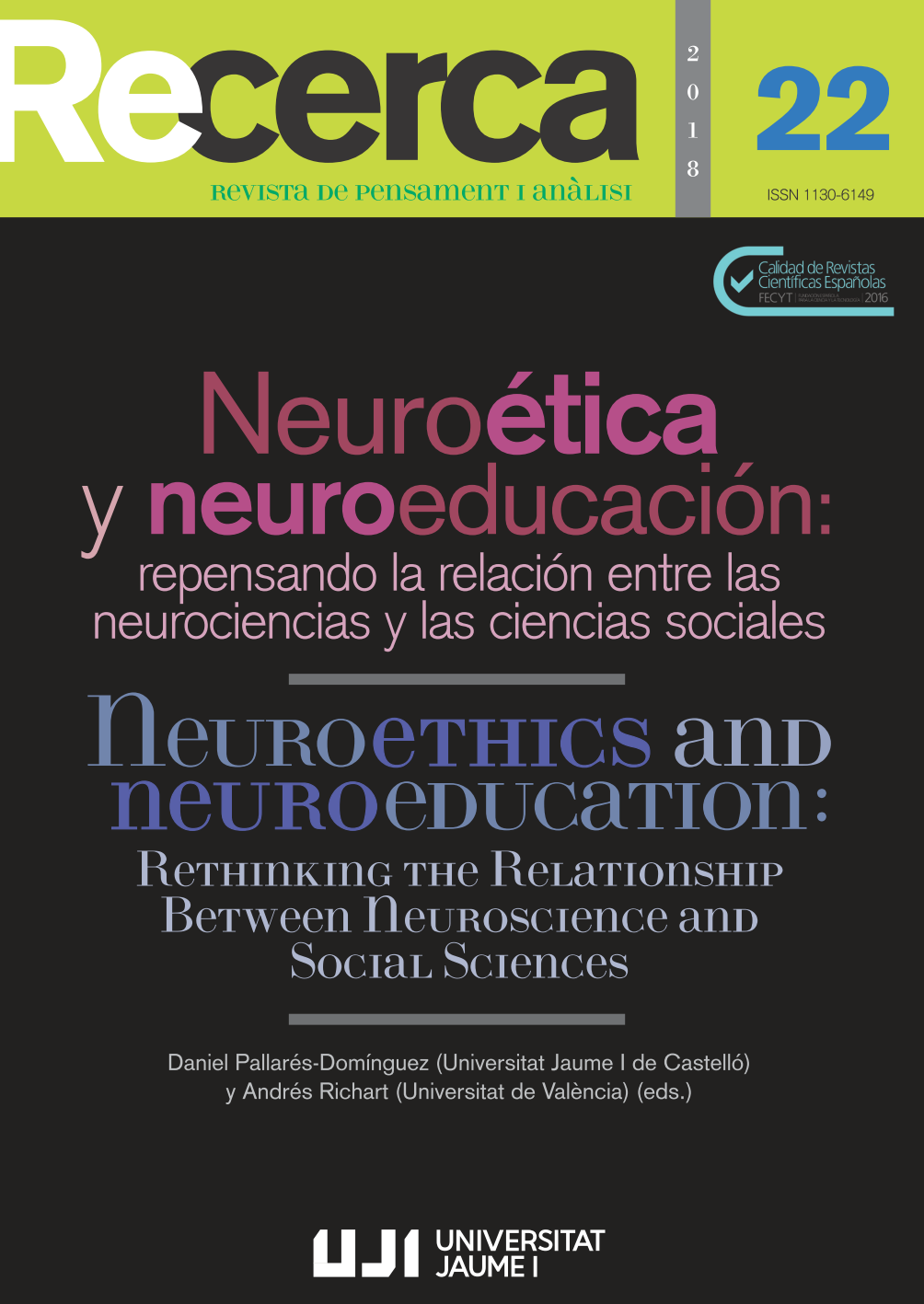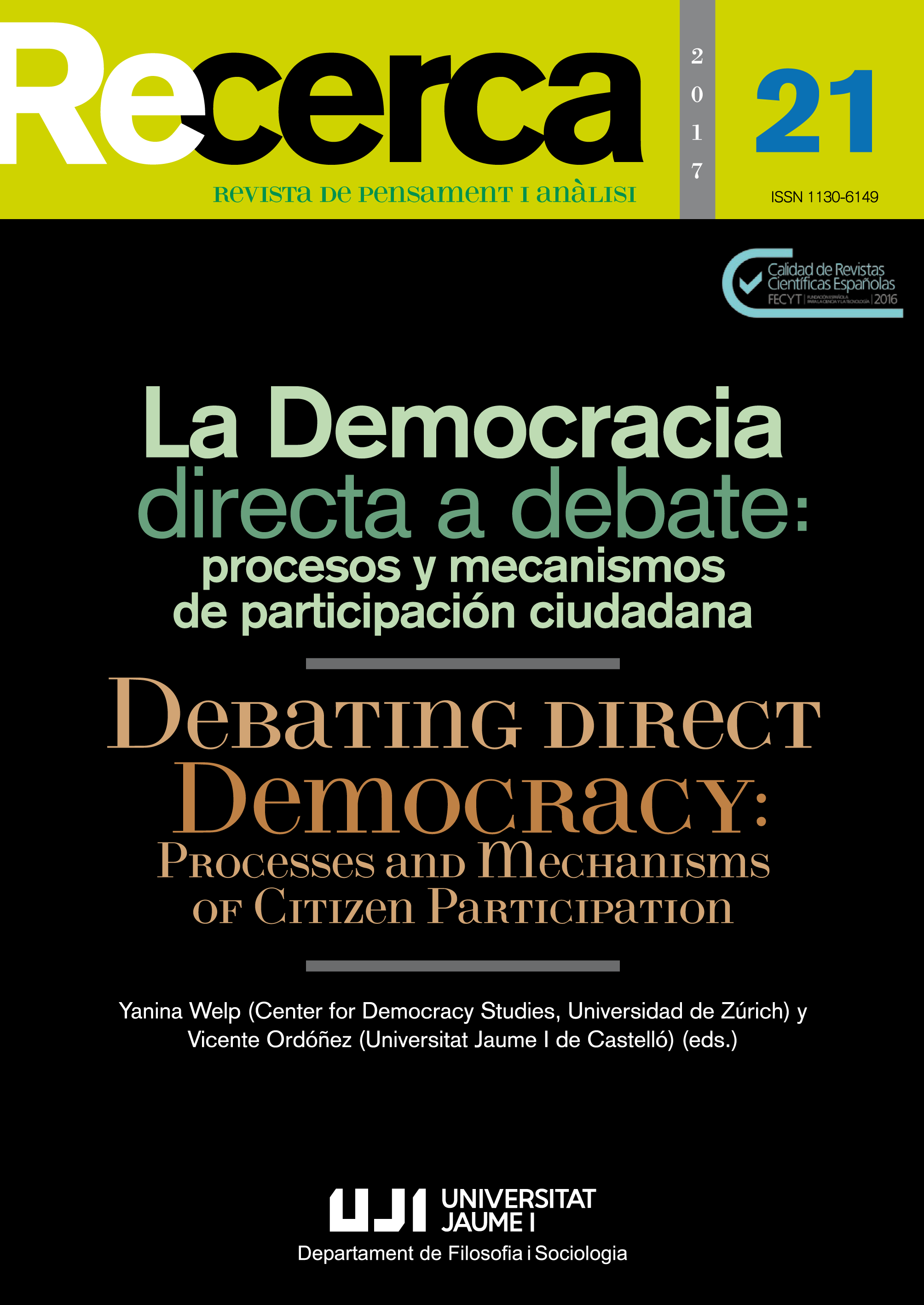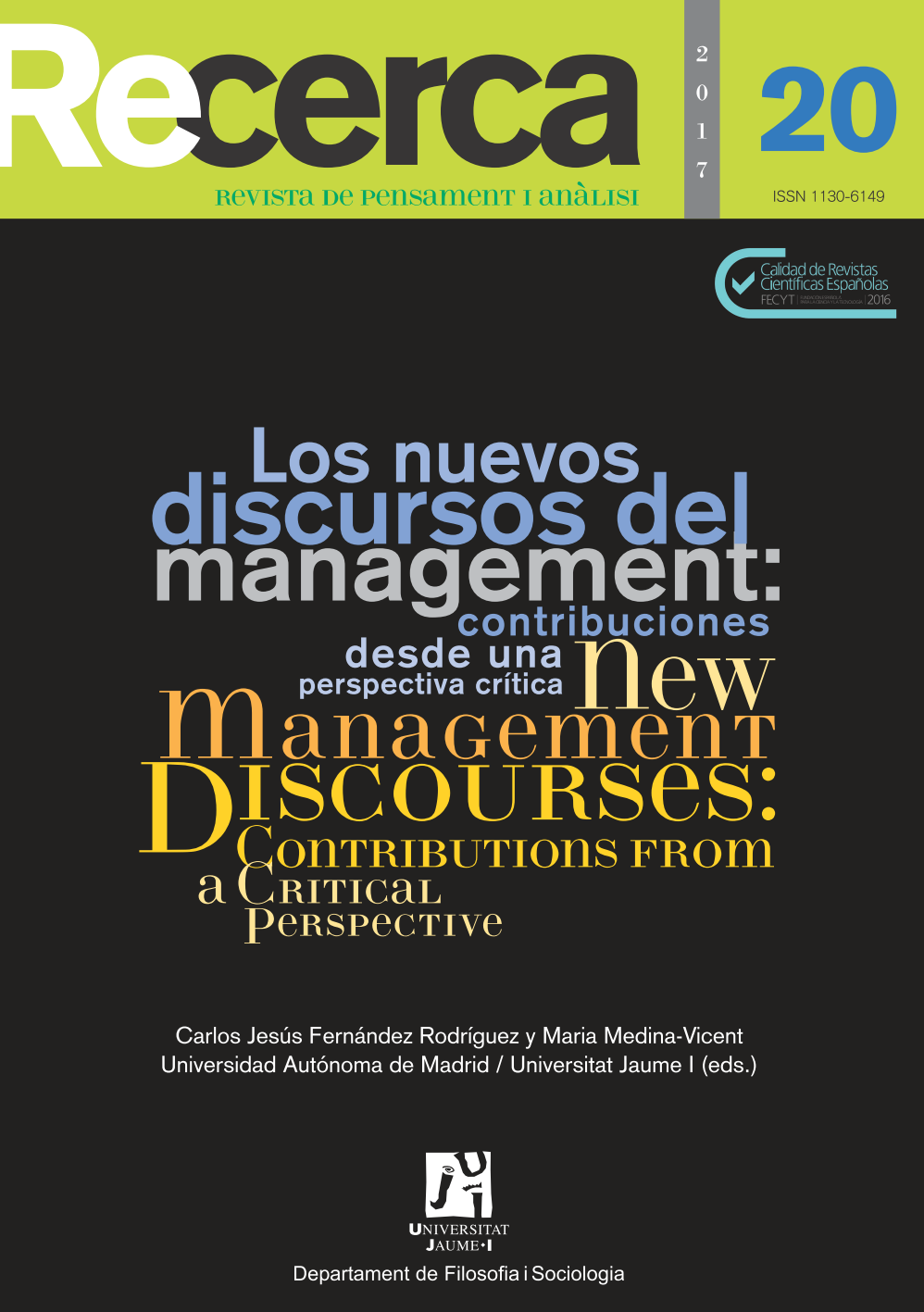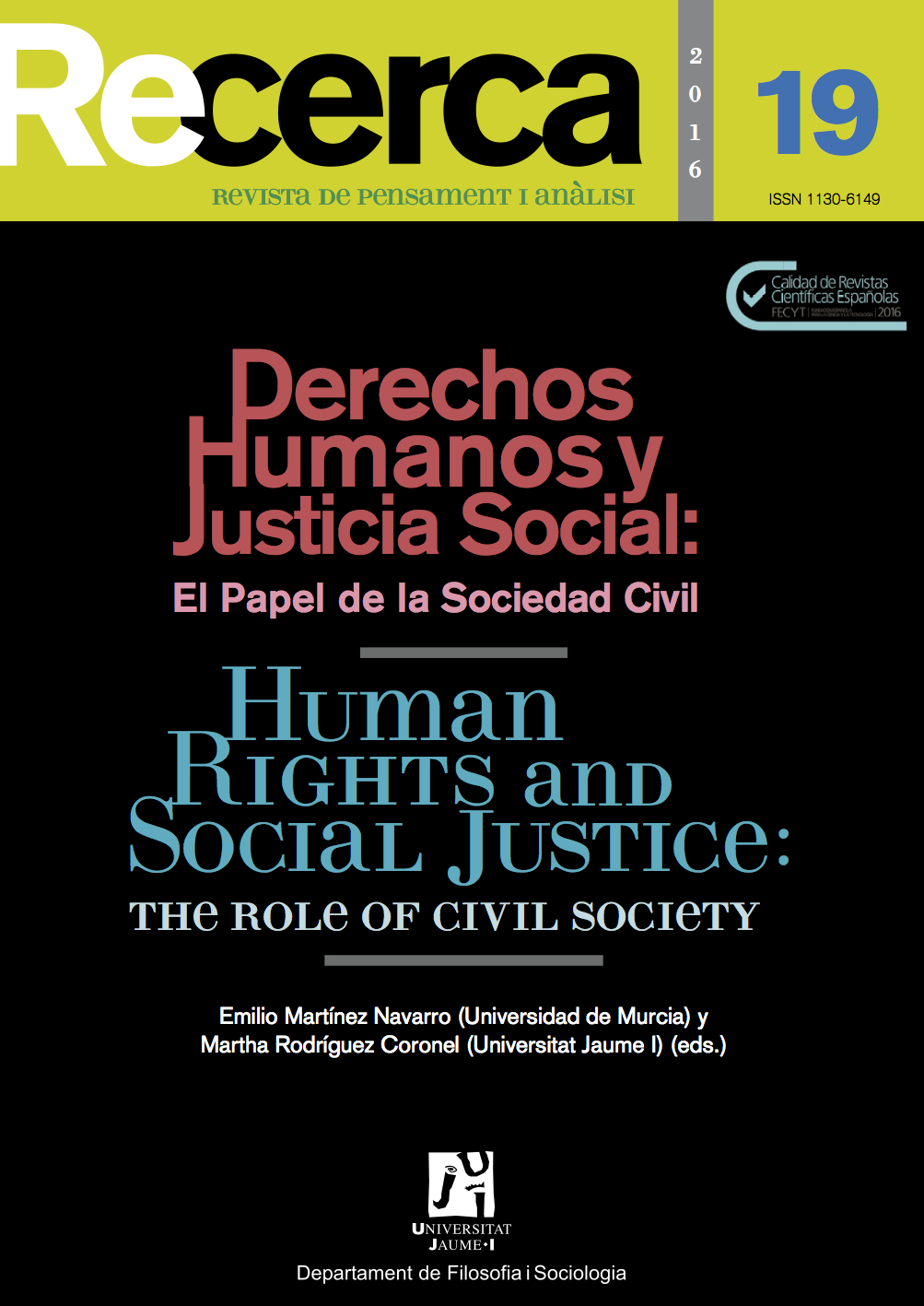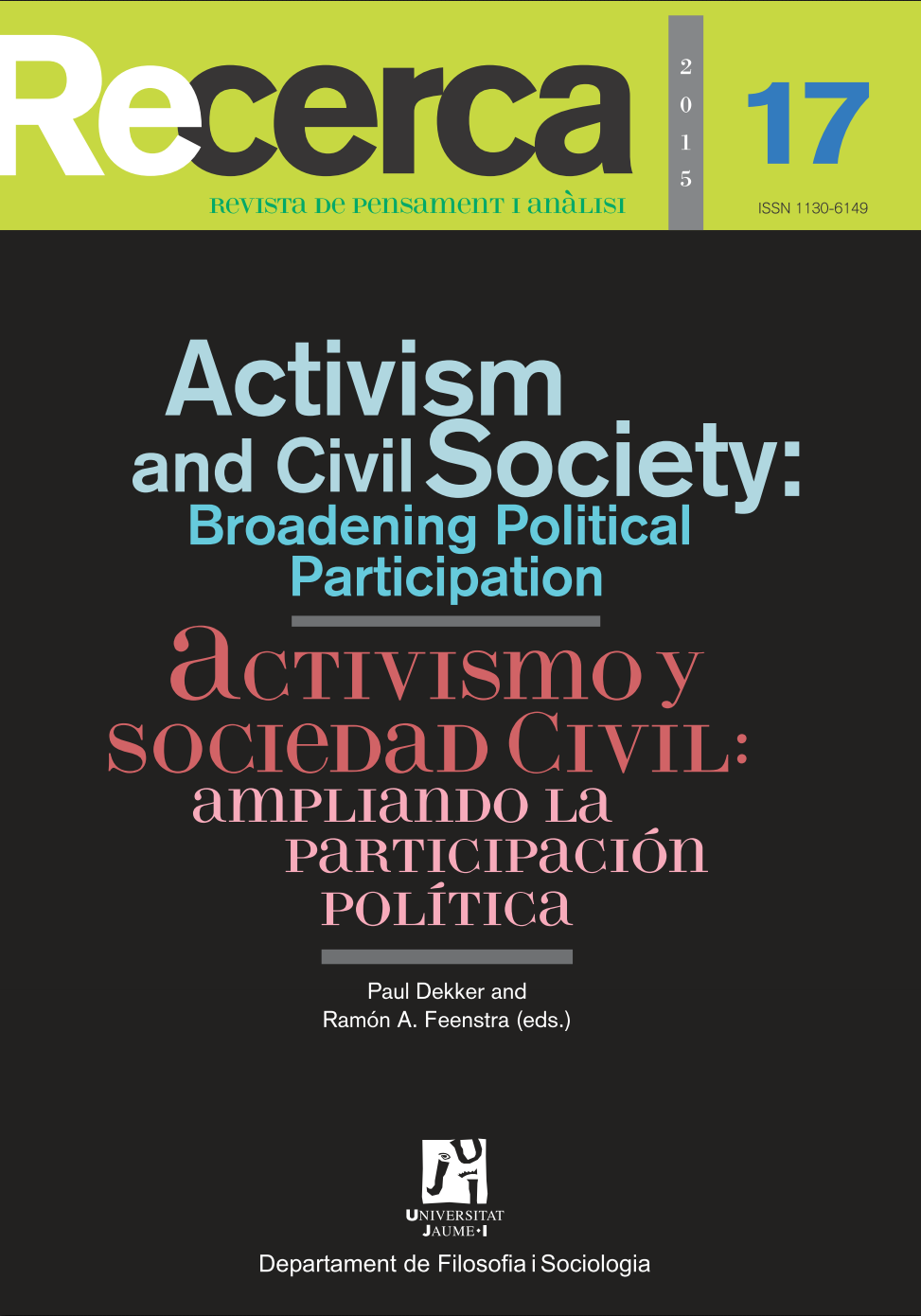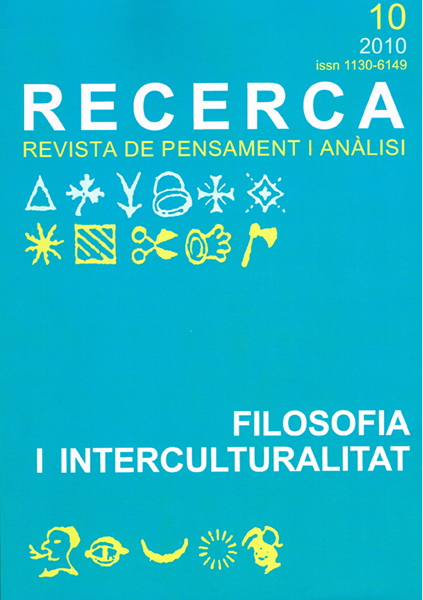Neuroética y neuroeducación: repensando la relación entre las neurociencias y las ciencias sociales
No. 22 (2018)
Neuroética y neuroeducación: repensando la relación entre las neurociencias y las ciencias sociales
Daniel Pallarés-Domínguez (Universitat Jaume I) y Andrés Richart (Universitat de València) (eds.)
La democracia directa a debate: procesos y mecanismos de participación ciudadana
No. 21 (2017)
La democracia directa a debate: procesos y mecanismos de participación ciudadana
Yanina Welp y Vicente Ordóñez (eds.)
Los nuevos discursos del management: contribuciones desde una perspectiva crítica
No. 20 (2017)
Los nuevos discursos del management: contribuciones desde una perspectiva crítica
Carlos Jesús Fernández Rodríguez y Maria Medina-Vicent (eds.)
Derechos humanos y justicia social: El papel de la sociedad civil
No. 19 (2016)
Derechos humanos y justicia social: El papel de la sociedad civil
Emilio Martínez Navarro y Martha Rodríguez Coronel (eds.)
Ética del deporte. Los desafíos del deporte del siglo XXI
No. 18 (2016)
Sport Ethics. The challenges of 21st century sport.
Francisco Javier López-Frías and Òscar Chiva-Bartoll (eds.)
Activismo y Sociedad Civil: ampliando la participación política
No. 17 (2015)
Activism and Civil Society: Broadening Political Participation
Paul Dekker and Ramón A. Feenstra (eds.)
Young people and transitions to adult life: inequalities, challenges and new social forms in a context of crisis
No. 16 (2015)
Editors: Vicent A. Querol y Mercedes Alcañiz
Common Goods: New Forms of Participation of Civil Society in Democracy and The Economy
No. 15 (2014)
Editors: Daniel Pallarés Domínguez and Stefan Eriksson
New Insights Into Relational Goods
No. 14 (2014)
During the last thirty years, the value of the human relational and communicative dimension has been emphasised in numerous studies, first, because of its part in creating meaning and in the development and sustainability of diverse spheres of human activity, including economic activity; and second, because of its role in different processes of social change. This new personal and reciprocal paradigm offers a perspective from which to observe, analyse, describe and understand social reality beyond simple self-interested individual actions and merely welfare-based structural effects that undervalue the transformative potential of the reality of civil society and spawn individualistic, dependent, disaffected and dehumanised citizens.


